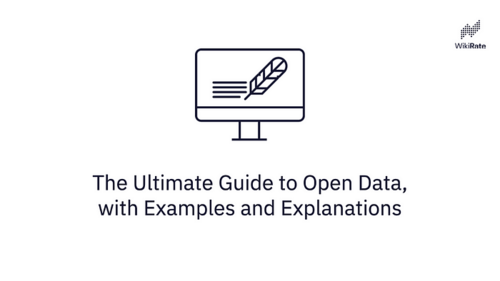The Ultimate Guide to Open Data with Examples and Explanations

Open data is crucial to business, government, and social enterprises — this idea isn’t new. What has changed in recent years is how open data has become part of most people’s everyday lives.
Open data is no longer a niche topic but essential, for example, to completing journeys or keeping us safe from Covid 19. But it’s not only tech companies and social enterprises who are pushing boundaries with open data, law-makers are also starting to clock on to its future potential.
Plans recently published by the EU set forth ambitions to capitalize on open data’s economic potential by 2025:
- The open data market size will grow from a value of €184.45 billion in 2019 to between €199.51 — €334.20 billion.
- Between 1.12–1.97 million people will be employed in open data jobs.
- Open data can help save the environment, e.g., reducing household energy consumption by the equivalent 5.8 Million tonnes of oil.
So why is this important to you?
Got a smartphone? If the answer is yes, then chances are you’re benefiting from open data, or equally likely you are creating open data. As the statistics above show, open data is increasingly important and will play a significant role in our lives. So it makes sense to know a bit about what is going on.
In this article, we’ll start with a definition of open data, then look at the concepts (with examples) that make up open data and point you in the direction of places where you can access and download open data.
If you are a seasoned open data user, the last two sections are for you as we feature repositories and resources to get your teeth into.
We hope you find the prepared content helpful!
